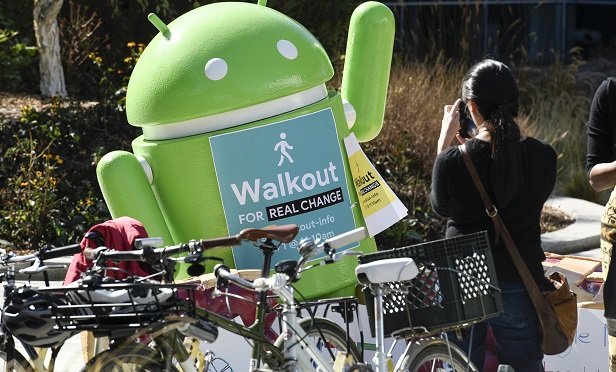 The most common activist action is initiating a conversation with other employees, followed by sharing an opinion or comment about their employer that was initially posted by someone else. (Photo: Bloomberg)
The most common activist action is initiating a conversation with other employees, followed by sharing an opinion or comment about their employer that was initially posted by someone else. (Photo: Bloomberg)
Employers take note: more workers—especially millennials—are feeling more empowered to be “employee activists,” according to “Employee Activism in the Age of Purpose: Employees (UP)Rising,” by Weber Shandwick, in partnership with United Minds and KRC Research.
“The majority of employees, particularly millennials, believe that they are right to speak up for or against their employers when it comes to hot-button issues that impact society,” says Weber Shandwick's CEO Andy Polansky. “As employee activism continues to gather steam, leaders need to be prepared to listen and respond.”
The survey of 1,000 U.S. workers found that millennials are the generation most likely to be employee activists (48 percent), much more so than Gen Xers (33 percent) and baby boomers (27 percent).
Related: Google walkout: A new kind of worker activism
Some recent examples of activism both opposing and supporting employer actions include employees walking off their jobs to protest the company paying a large severance package to an executive fired for alleged sexual misconduct; an employee of a major media company tweeting concerns with his management's decision to spend a large sum of money on a TV ad supporting journalists' freedom of speech, rather than on employee benefits; employees of a large retail chain posting comments on their own social media pages that they were proud that their employer removed a certain category of unhealthy products from their shelves.
While workers of all generations believe that employees have a right to speak up in support of their employers, millennials are the only generation that think employees are just as right to speak out against their employers as they are to support (82 percent vs. 85 percent, respectively).
The most common activist action is initiating a conversation with other employees, followed by sharing an opinion or comment about their employer that was initially posted by someone else on social media; expressing an opinion at a company-wide meeting or forum (including online forums); contacting their employer's human resources department; posting an opinion or comment on social media; contacting one or more of their employer's top leaders; posting an opinion or review on a career site; signing a petition; and posting a video on social media.
Some actions are rarely taken—activist actions that garnered 10 percent or less include encouraging others not to work for their employer; saying something to the news media (e.g., by talking to a reporter, posting a public comment, or writing a letter); participating in a demonstration, protest or march; and quitting their job and letting their employer know they were leaving because they disagreed with the employer's stance on an issue.
The report offers guidelines for employers on how to navigate “the new wave” of employee activism:
- Embrace employee activism as a positive force to propel your reputation and your business.
- Ensure your corporate purpose and culture are known from the point of applicant interview and onboarding through employee tenure.
- Be mindful of what is on employees' minds.
- Cultivate a culture of openness and transparency.
- Establish a response protocol.
- Clearly articulate and communicate your company's values.
- Make your company's values part of the solution.
“Corporate reputation can find itself on shaky ground if no one is taking the employee pulse or feedback seriously,” says Weber Shandwick's chief reputation strategist Leslie Gaines-Ross.
Read more:
© 2025 ALM Global, LLC, All Rights Reserved. Request academic re-use from www.copyright.com. All other uses, submit a request to [email protected]. For more information visit Asset & Logo Licensing.








